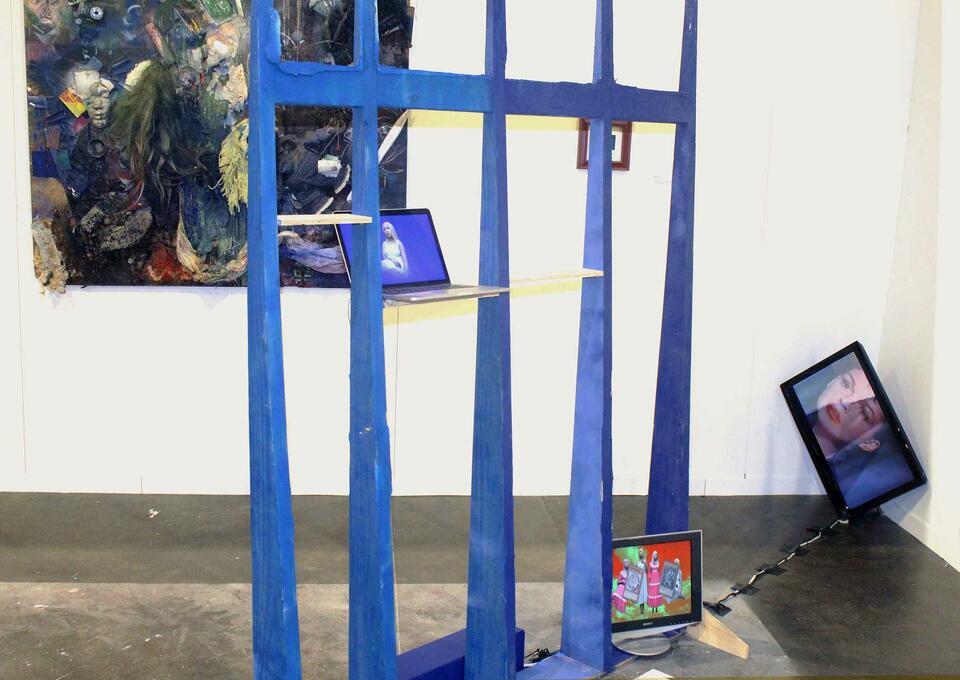Aiza Ahmed
On noses, pomp, and drama
My practice, spanning drawing, painting, sculpture, and installation, is a stage where fact meets fiction, where a cast of characters composed from cinema, archival documents, reportage, lived experiences, memory, and fantasy are brought to light in a make-believe world. I ponder the complexities of being in a long-distance relationship with my home country, Pakistan. I think about migration, my own as well as generations before me; Pakistani traditions, society, culture; and kinship and its many layers. I reflect on being torn from my loved ones, be it my family who live on the other side of the globe or the departed souls. I seek to map the lines to where my ancestors lived yet come to terms with how the lines will not connect.
Tired feet
The border between India and Pakistan is one of the most contested lines on the world map. I have been thinking about the gates of power, particularly ones that I have ties to geographically. I am reminded from my childhood of the highly theatrical Lowering of the Flags ceremony that takes place at dusk daily, at the Wagah border between Lahore and Amritsar—twin cities separated by the bloody Partition in 1947. The Partition of the Indian subcontinent into the independent nations of Hindu-majority India and Muslim-majority Pakistan was accompanied by one of the largest mass migrations in human history and violence on a scale that had rarely been seen before. The synchronization of two nations, once in sync, forcibly severed.
Image
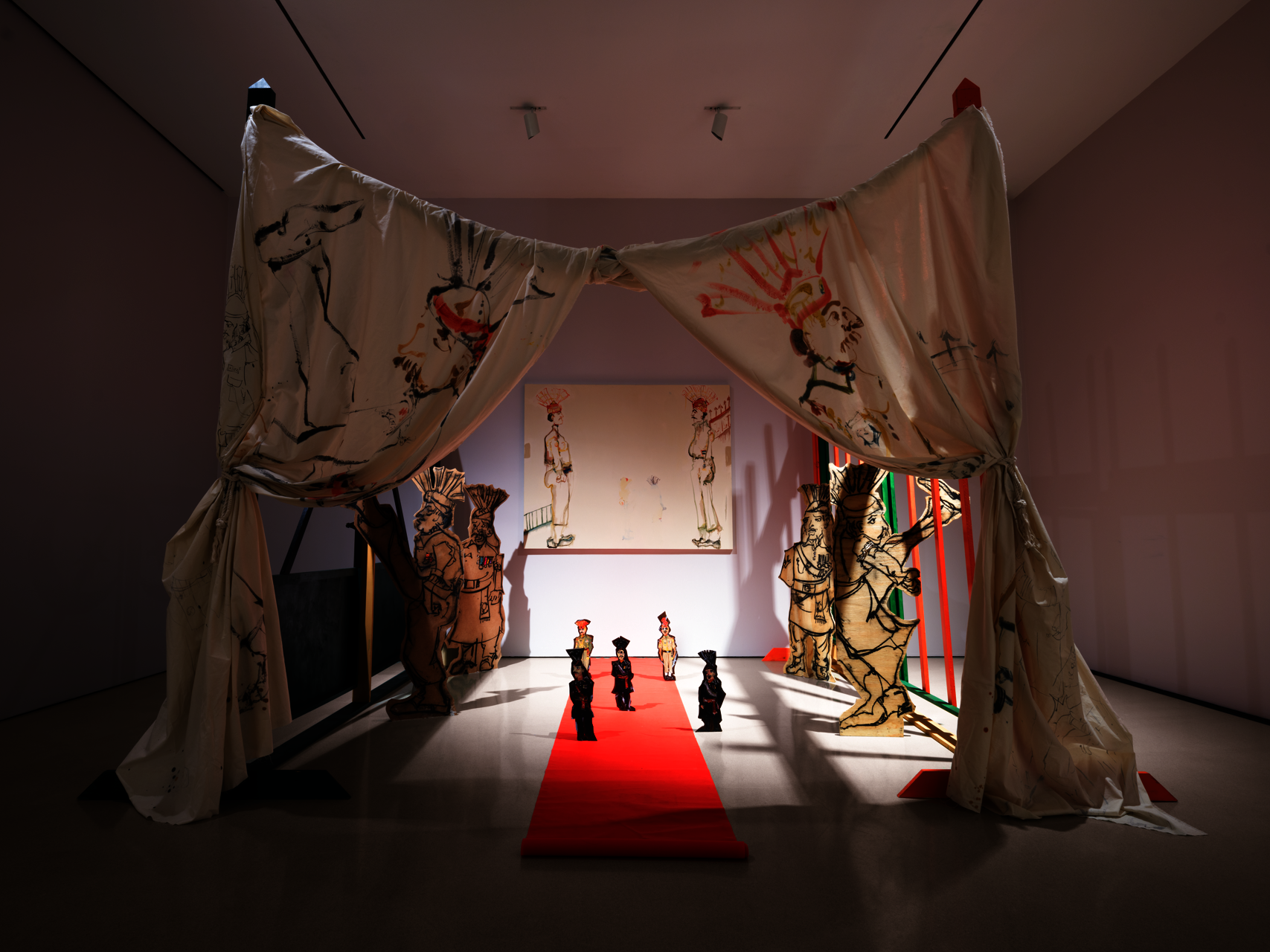
Tired feet, retreating, 2023-24,
installation comprising oil painting on canvas, masonite, and muslin; charcoal and found fabric on wood cutouts, wooden handmade gates, sound, video performance (05:22), projection, carpet, and hardware, 9 x 12 x 8.5 feet.
Installation view (front), What Lovers Do:
RISD MFA Painting Thesis Exhibition,The FLAG Art Foundation, May 2024
Tired feet, retreating
The Wagah border is a stage. A spectacle. A performance of nationalism, militarism, masculinity, rivalry, and pomp. There is precision, symmetry, and mirroring. There is theatricality inherent to the aggression. Division and discipline ingrained in those engaged in the choreographed march. I think about the audience who make the trek to witness this performance, some with popcorn in hand, others with cameras from overseas. Who are they chanting for? What are we celebrating? Why does an “us versus them” exist, mentality, still?
Image
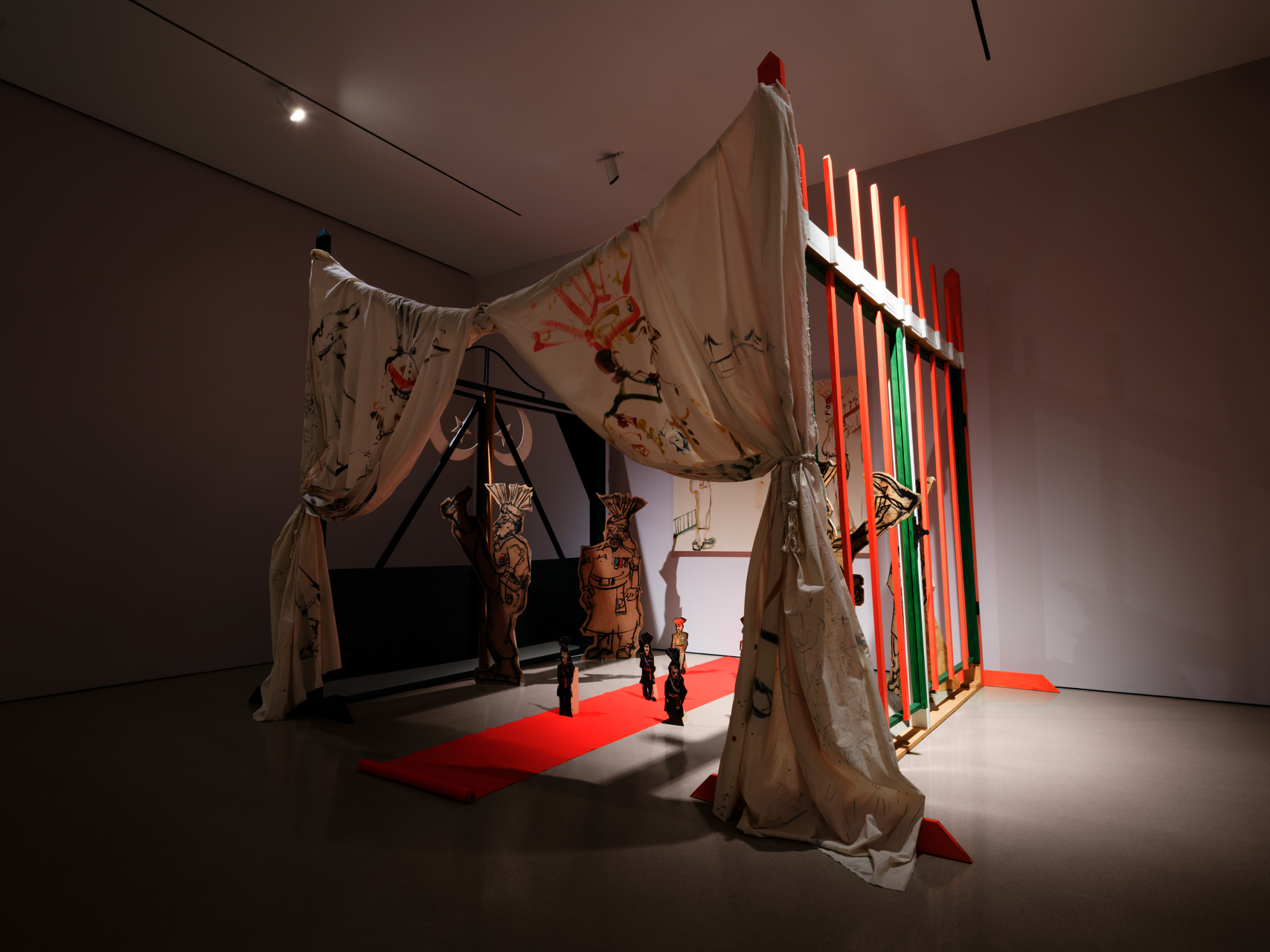
Tired feet, retreating, 2023-24,
installation comprising oil painting on canvas, masonite, and muslin; charcoal and found fabric on wood cutouts, wooden handmade gates, sound, video performance (05:22), projection, carpet, and hardware, 9 x 12 x 8.5 feet.
Installation view (side), What Lovers Do:
RISD MFA Painting Thesis Exhibition,The FLAG Art Foundation, May 2024
Tired feet, retreating
I think about the weight of feet stomping, marching, parading. Fists in the air, towards one another. Arms not dangling but firm. Rigidity. The headgear situated perfectly, not an inch moves. Stiffness. The psychological weight of recall. The haunting gap in between. High kicks. The absurdity of compromising your body for the state. Men who take extra care of their beards and mustaches, to earn the extra rupees.
Image
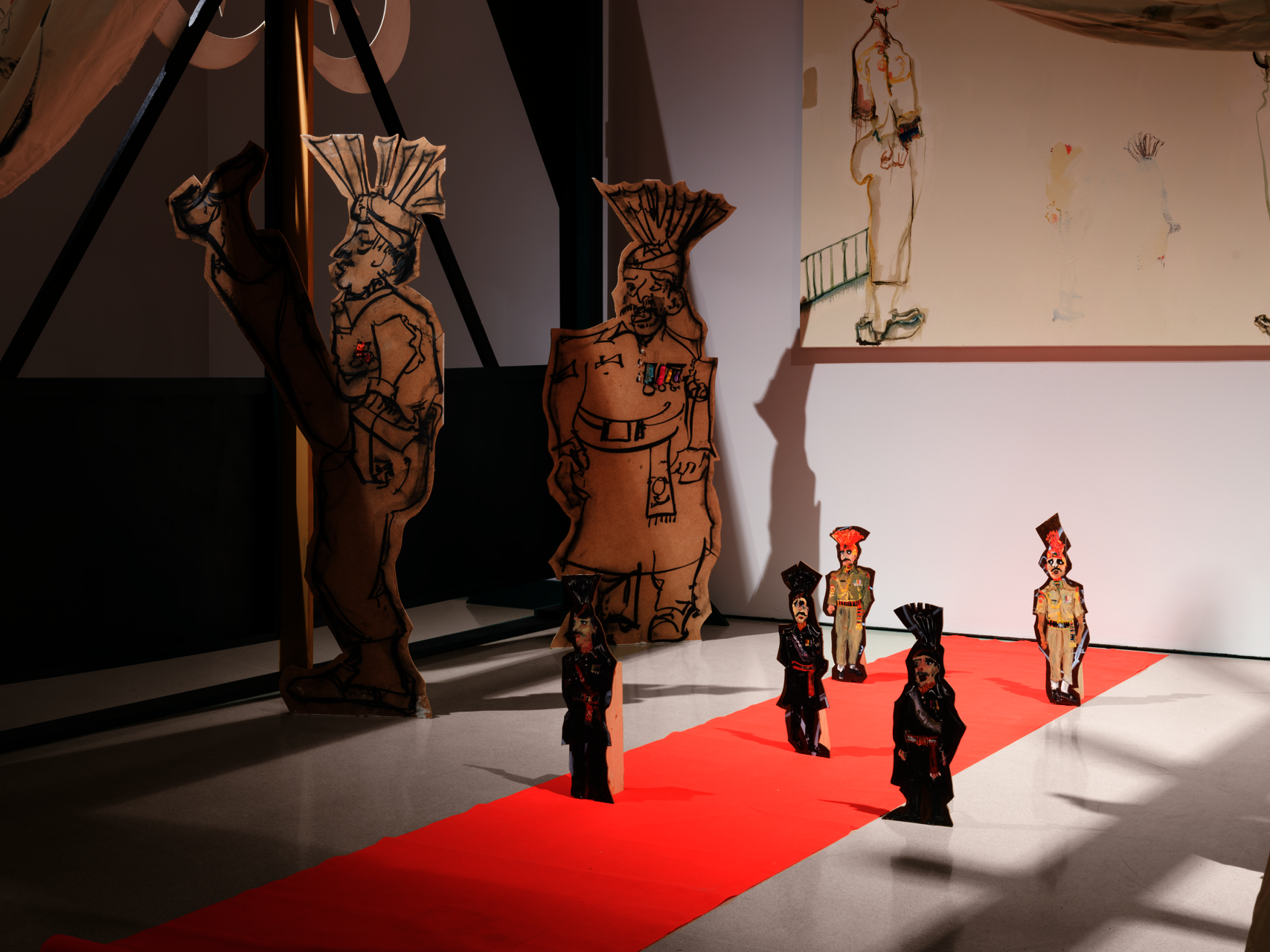
Tired feet, retreating, 2023-24,
installation comprising oil painting on canvas, masonite, and muslin; charcoal and found fabric on wood cutouts, wooden handmade gates, sound, video performance (05:22), projection, carpet, and hardware, 9 x 12 x 8.5 feet.
Detail, What Lovers Do:
RISD MFA Painting Thesis Exhibition,The FLAG Art Foundation, May 2024
Tired feet, retreating
I was in it. I froze. I was transported to the border, in the 80s. A handful of people in sight. None of the theatricality and pageantry occurred. It was a simple check post. To juxtapose the current day ceremony with the past was a haunting experience. To be physically inside the space, embodying the characters I draw, paint, and sculpt, was even more haunting, evem eerie. As I lay on the floor looking up at the black and white photograph, which then mirrored back at me, I was at a loss for words.
I was the border.
Image
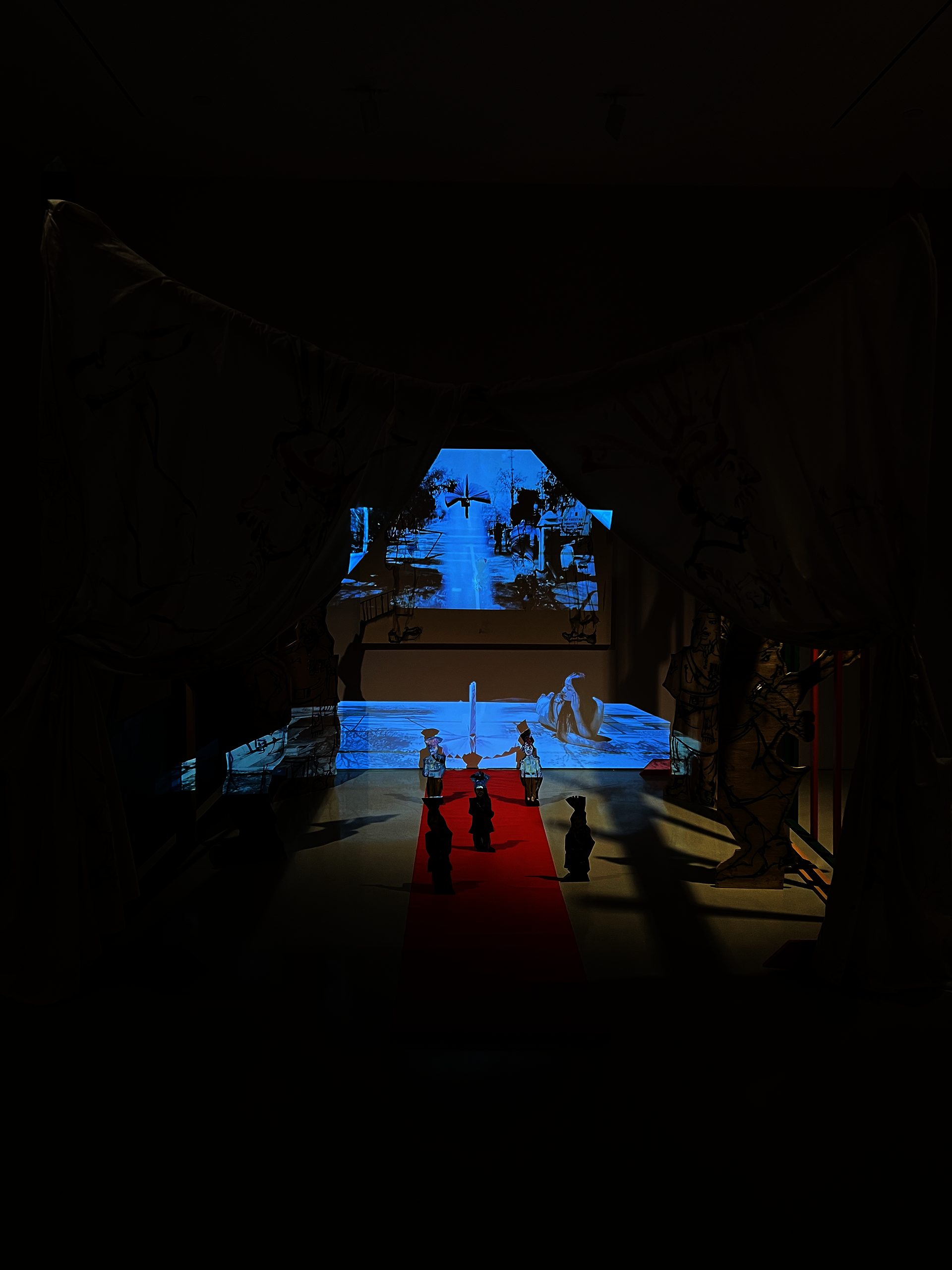
Tired feet, retreating, 2023-24,
installation comprising oil painting on canvas, masonite, and muslin; charcoal and found fabric on wood cutouts, wooden handmade gates, sound, video performance (05:22), projection, carpet, and hardware, 9 x 12 x 8.5 feet.
Detail, What Lovers Do:
RISD MFA Painting Thesis Exhibition,The FLAG Art Foundation, May 2024
A kick and a flick for being so quick
Unity but no unity.
Camaraderie but no camaraderie.
Generations come and go, yet we are still repeating the same motions.
A part of the land where we are so close to our counterpart, forbidden to take one step closer. Touching but barely. Sneak in a glimpse but never fully.
Image
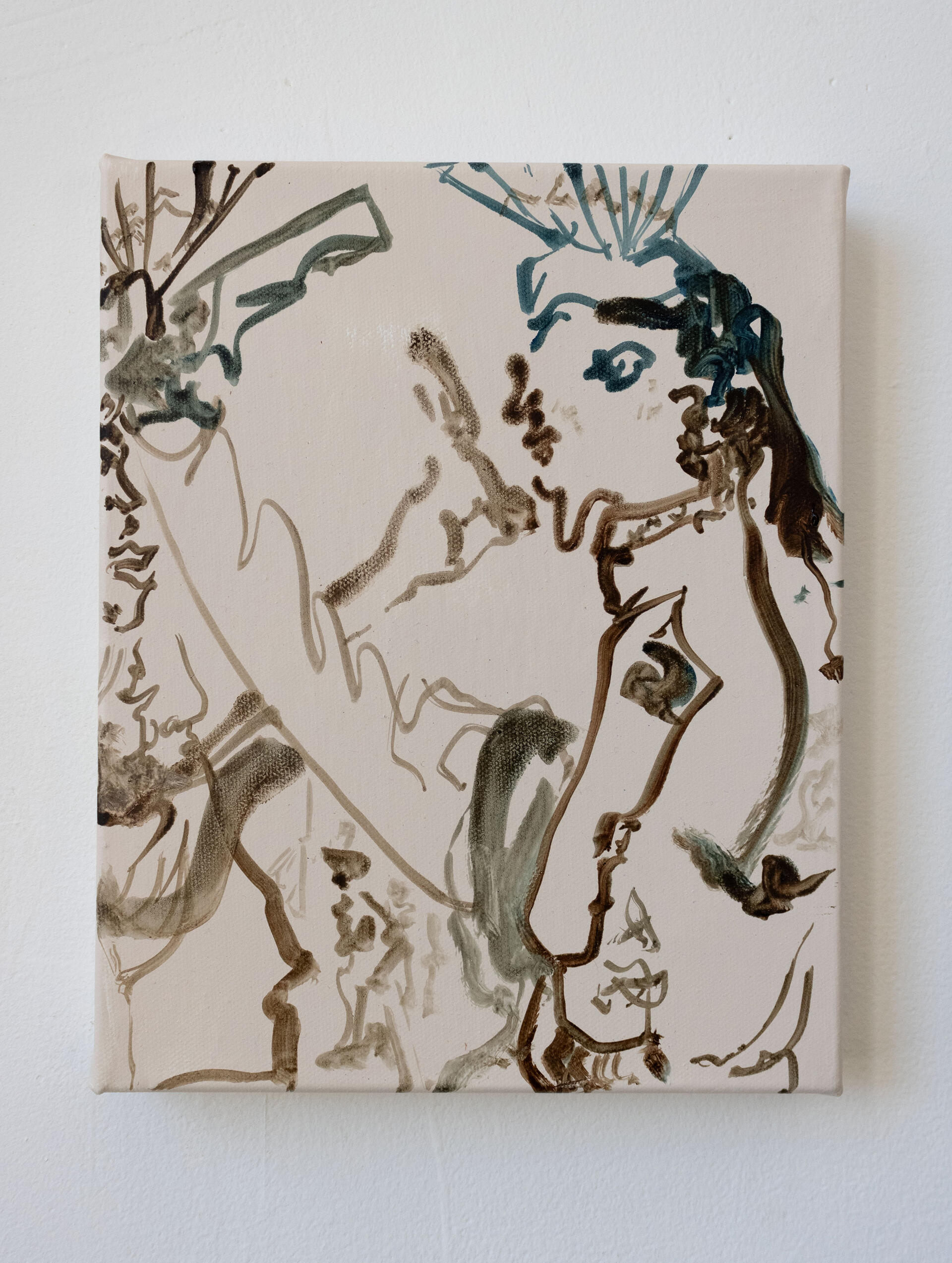
A kick and a flick for being so quick, 2023, 10” x 8”, oil on canvas
We were one, once upon a time
Image
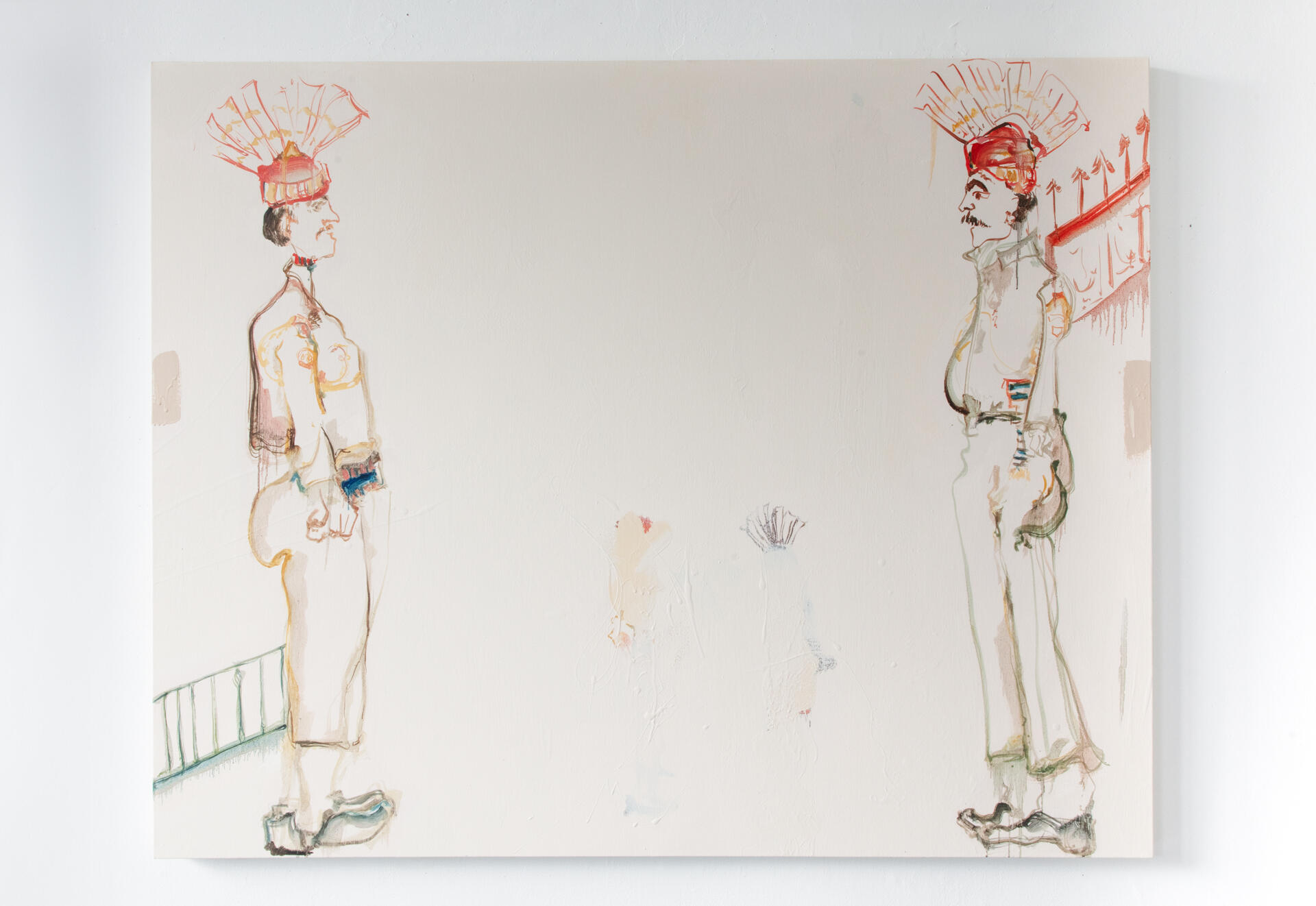
We were one, once upon a time, 2023, 48” x 60”,
oil on canvas
till from Rizwan and Rohan Reunite
In Rizwan and Rohan Reunite (2023), I explore the staging of nationalism and reimage this performance through animation. Red curtains, paper turbans, black silky fabric, soft felted hair, exaggerated clay noses, estranged buttons, and scraps of shiny silver lace for medals, ornaments, and embellishments. What if we lived in a world where Pakistan and India reunited? Their postures turn from profile silhouettes to standing shoulder to shoulder. What if the hurt and longing burst into a celebratory dance performance? The making of the miniature puppets was a milestone in my investigation of the border. I realized the soldiers themselves are truly puppets in real life, they are controlled by strings. They have no say, mimicked by the awkward, jerky, frame by frame movement in the animation. Humor enters but on whose expense?
Image
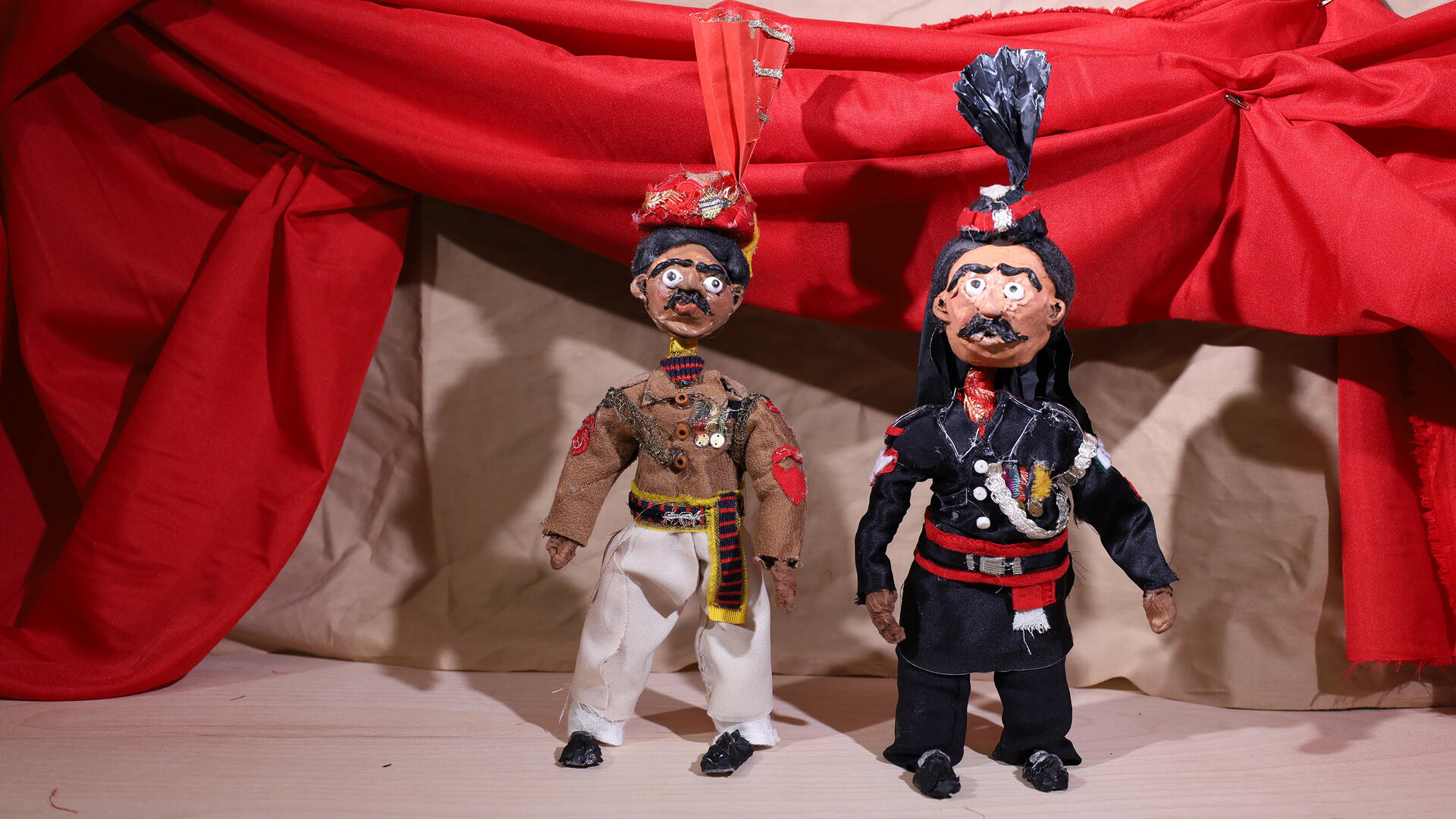
till from Rizwan and Rohan Reunite, 2023, 01:31.
Puppet creation, set design, animation, and concept by Aiza Ahmed.
Pen and colored pencil on paper, part of ongoing artist book
A gatherer of impressions, gestures, and particularities, my practice is rooted in drawing, and my drawing rooted in the process of blind contour. To engage deeply in close looking closely at a subject without looking down at the surface. I draw to fill the gaps I face when excavating family trees. People, places, and possessions are not static nor is time. Rather the line is wiry and in motion, akin to my itinerant self, crossing boundaries. Moving from home to home, attempting to settle each time. Lines speak to lines, yet they fall short, unable to coalesce. The incompleteness echoes. Distortions. Engaging in this process blind, there is a surrender, an urge to imagine the upheaval my ancestors faced; to lose control. The story of being divided by one of the most contested lines in the world, the border between Pakistan and India.
Image
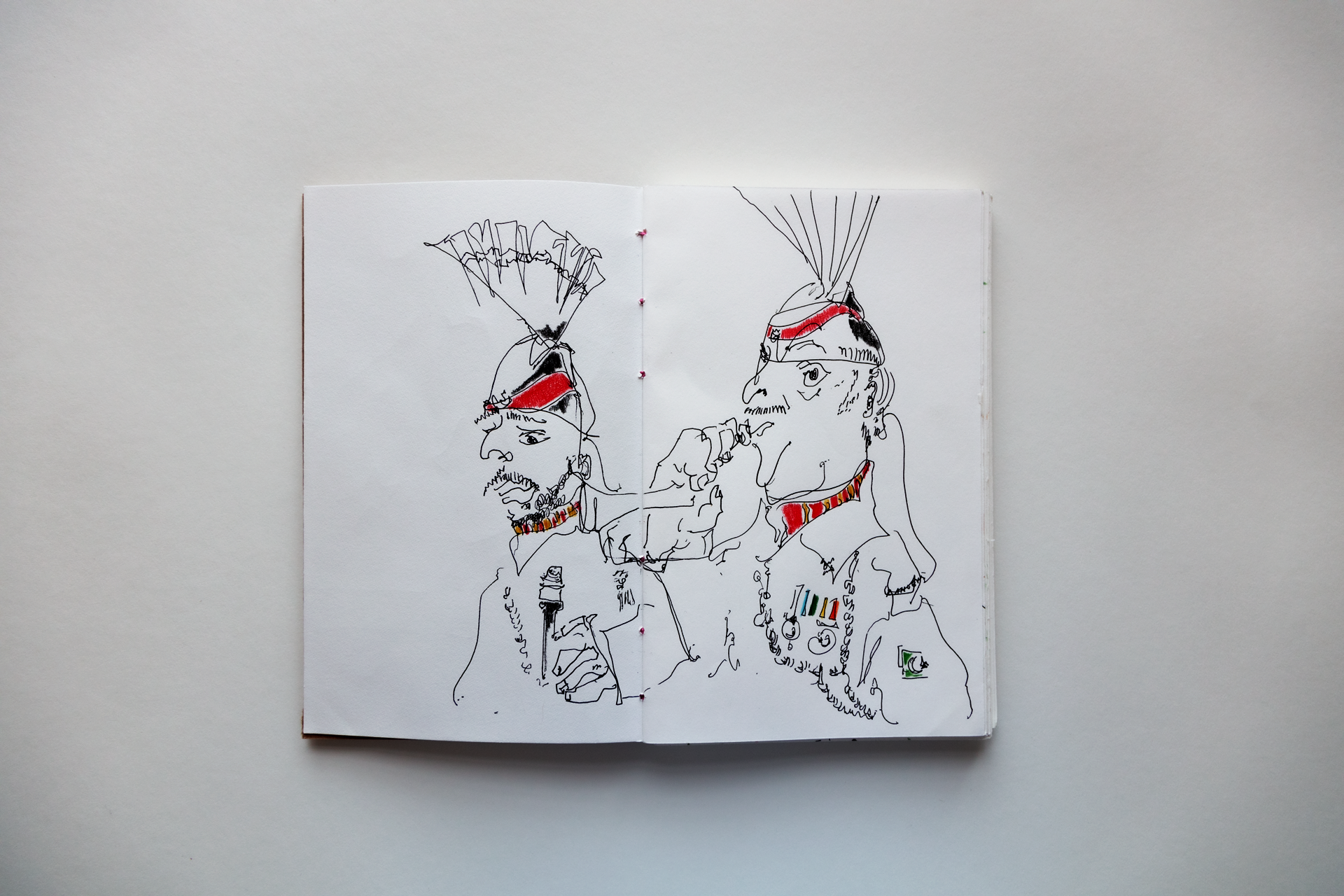
pen and colored pencil on paper, part of ongoing artist book.
EXHIBITION IMAGES
